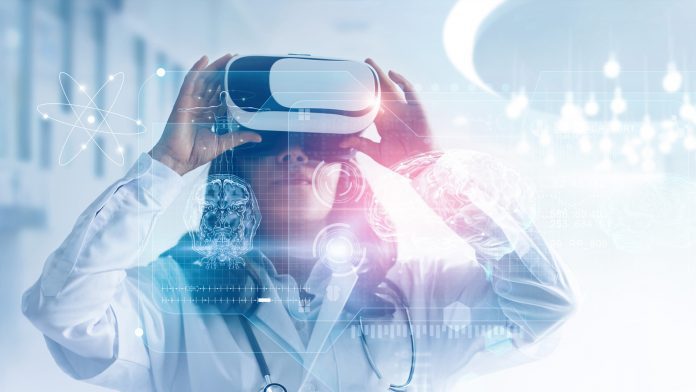
A University of Oxford research team has pioneered groundbreaking virtual reality therapy to help patients with psychological disorders.
In the most extensive clinical trial to date, automated virtual reality therapy was demonstrated to effectively treat individuals diagnosed with psychosis, with the most significant benefits experienced by those with the most challenging mental health problems. An advantage of the technology is that the user is guided by a virtual coach, meaning there is no need for a real-life therapist, and it reaches more patients.
The study, funded by the National Institute for Health Research (NIHR), is published in The Lancet Psychiatry.
Innovating virtual reality therapy
The virtual reality therapy, called gameChange, was created in a collaborative effort between the university and health experts, including OxfordVR, who develops immersive technology for mental health. OxfordVR is led by researchers at the University of Oxford and Oxford Health NHS Foundation Trust and aims to combat one of the most paramount issues presented in people with psychosis – intense fears about being outside in everyday situations.
These fears, for many psychosis patients, evolve into severe agoraphobia, resulting in them not wanting to leave their homes, disrupting personal relationship, their education, and their career. The gameChange virtual reality therapy is designed to remedy this agoraphobia and reintroduce patients to daily activities.
Professor Daniel Freeman, lead researcher, Department of Psychiatry, University of Oxford and NIHR Senior Investigator, said: “Virtual reality therapy has come of age with gameChange. Over the past 25 years, VR has been used in a small number of specialist mental healthcare clinics. It has supported in-person therapy delivered by a clinician. However, with gameChange, the therapy is built-in, so it can be overseen by a range of staff, and it can be delivered in a variety of settings, including patients’ homes.
“We are delighted that gameChange has produced excellent results for people with some of the most challenging mental health problems. Individuals who were largely housebound have got back outside. Using today’s affordable and easy-to-use consumer VR equipment, we think gameChange will lead a transformation in the digital provision of evidence-based psychological therapy, with deployment at scale for treatments that really work.”
How did gameChange perform?
Results from the study illuminated that the gameChange virtual reality therapy reduced how many everyday situations users avoided. The most significant effects were displayed in those who found it the most challenging the leave the house and had the most psychiatric symptoms, such as severe anxiety, depression, delusions, and hallucinations.
These patients were able to perform activities they once thought were unthinkable, with benefits maintained at the six-month follow-up. Moreover, feedback from the users signified that virtual reality therapy was popular, with a promisingly high up-take rate.
People with mental health problems like psychosis struggle to access physiological therapies due to a shortage of clinicians. The novel virtual reality therapy offers an innovative alternative for these patients to alleviate the burden of their conditions.
Dr Felicity Waite, a clinical psychologist in the Department of Psychiatry, University of Oxford, said: “The gameChange program provides an engaging, active therapy. In a safe place, patients learn by doing, practising real-life activities such as buying a coffee or getting on a bus, which helps them develop the confidence to take on real-world challenges. Feedback from participants shows that people of all ages really enjoy the gameChange experience. They find it easy to use. And they are often amazed at the progress it has helped them to make.”
Professor Mike Lewis, NIHR i4i Programme Director, said: “This impressive research exemplifies what NIHR aims to achieve through its i4i funding scheme – truly transformational technology that can change people’s lives for the better. We’re really excited about the potential for gameChange to bring the benefits of psychological therapy to many more people in their own homes through the medium of virtual reality.”
Participants in the gameChange trial commented: “The therapy changed my life. I’m more confident in myself. I’m more confident around other people. I see gameChange helping everyone. I think everyone’s going to be using it.
“If anyone has the opportunity to do the virtual reality therapy, I really would recommend it because it’s made a lot of difference to me. After seven years of illness, I do feel so much better. I’ve been able to make eye contact with people more without feeling really anxious; I’ve been able to walk down a street without worrying about anyone walking toward me. I’m now able to go into a café. I feel much more confident about going on a bus. I just feel so much more confident than I was.”
























